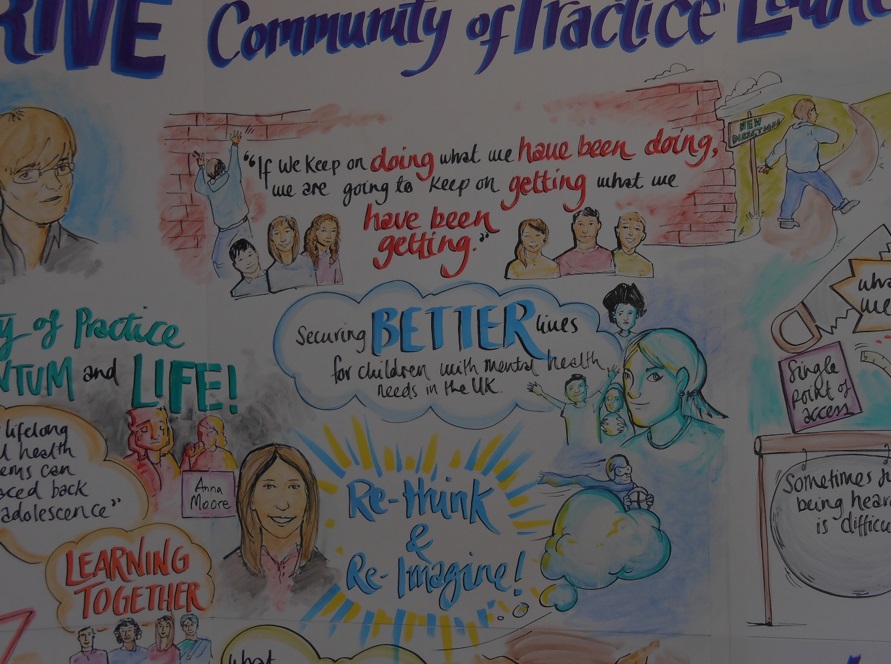
News
The THRIVE Framework for system change could help address the post-pandemic crisis in child and adolescent mental health
A new report by the NHS Confederation Mental Health Network reveals a steep increase in demand for child and adolescent mental health services (CAMHS) during the pandemic, with one in six people aged five to sixteen experiencing a mental health problem in 2020, up from one in nine in 2017. The report finds that 1.5 million children and young people may need new or additional mental health support as a result of the pandemic.
Child and adolescent mental health services have seen an increase across a range of mental health problems, including depression, anxiety, eating disorders and self-harm. Healthcare providers have also reported increased volumes of referrals and an increase in complexity and acuity from children and young people, with a disproportionate representation from minority ethnic and LGBTQI+ backgrounds, suggesting that the pandemic has exacerbated pre-existing health inequalities. Whilst the ongoing maturation of Integrated Care Systems enables more integrated system working, there is clearly more to be done to ensure equity of provision across the nation.
The report is clear that children and young people’s mental health and wellbeing is everyone’s responsibility and finds that the increasing demand for CAMHS has had an impact across the NHS and voluntary sector more broadly, with increased need for mental health support in A&E, acute admissions, primary care, education, the voluntary sector and digital services. The report also identifies the THRIVE Framework for system changeas providing an opportunity for innovation and creativity in the way we deliver integrated, personalised and needs-led mental health and wellbeing services. The THRIVE Framework was originally developed by a collaboration of authors from the Tavistock and Portman NHS Foundation Trust and the Anna Freud National Centre for Children and Families in 2014. A key principle of the framework is to support effective cross-sector working, with shared responsibility, accountability and mutual respect between agencies. This enables the whole community in supporting mental health and wellbeing. Under the Thrive Framework, the focus is on prevention and also the promotion of mental health and wellbeing across the whole population. When problems do occur the response is needs-led, integrated and person-centred, and ensures children, young people and their families are empowered through active involvement in decisions about their care through shared decision making.
Rachel James, Director of Child, Young Adult and Family Services at the Tavistock and Portman NHS Foundation Trust, said:
“This national report very much reflects what we are seeing as a result of the pandemic both locally in North Central London, and other areas across the country where we deliver support for children and young people experiencing mental health and wellbeing difficulties.
“We know that early intervention and compassionate care can change the lives of children and young people with mental health and wellbeing needs. However, we cannot deliver these vital services without sufficient funding. Strong consideration of the long-term impact of the current mental health crisis for children and young people on future generations should be key to the Government’s financial priorities. We are at a tipping point, and if we don’t act now, we risk failing a generation who could still make a swift recovery with the right support. Good mental health support and system approaches equate to better general wellbeing for the population and have a positive impact on our economy and the strength of the nation overall.
“It is crucial to recognise the impact this increased workload is having on mental health practitioners and the vital importance of investing in workforce development. Our children and young people’s workforce should always be provided with the appropriate training, capacity building, and support for their own wellbeing, to carry out this important work.
“We fully support the call to action by the NHS Confederation Mental Health Network and urge the Government to act now with a national strategy and investment to genuinely transform the way we deliver children and young people’s services and gain a greater understanding of the social determinants of mental health.”
